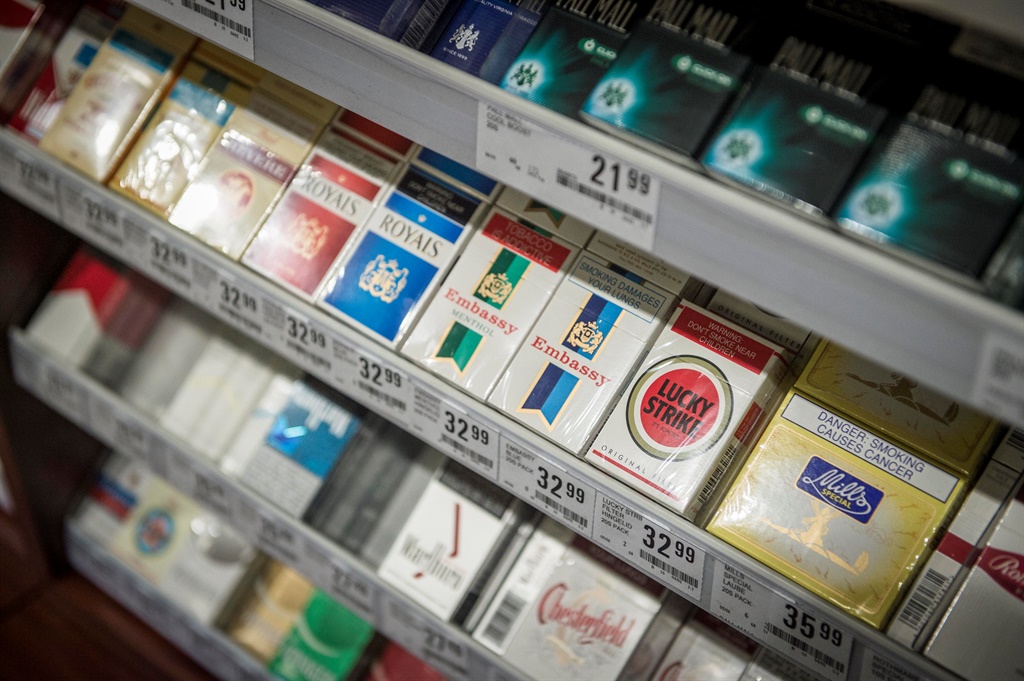
This bizarre decree around cigarettes, hot pies and roast chickens is an unnecessary distraction. Those heady with power must let go of their obsession with trying to control the population, writes Mandy Wiener.
I am not a smoker. I don’t like smoking. I think it’s dirty and repulsive. I would claim to have never smoked because my parents may read this, but I did for a brief period as a young journalist. We all did, to fill time during long hours standing around on crime scenes and waiting for press conferences to start. But that was a long time ago and I have no personal investment in this matter.
But Government’s draconian measures around the sale of tobacco and its about turn on the prohibition of the sale of cooked foods, strikes me as irrational, inexplicable and an unnecessary distraction. At a time when our resolve is beginning to waver, three weeks into a five week lock down, it’s upsetting a lot of people.
Many, many essential workers rely on pre-cooked food for sustenance and convenience and it makes no sense that government has all of a sudden implemented this restriction without a proper explanation.
Over the weekend, the Fair-trade Independent Tobacco Association (FITA) announced that it’s going to court to challenge the decision to ban the sale of cigarettes. Yesterday, it sent a letter of demand to the President and several Ministers, arguing its case and giving them until 10:00 Tuesday morning to respond to its requests.
The chairperson of the South African Tobacco Transformation Alliance has also now written an open letter to the President, pleading with him to reconsider the ban.
Both these approaches are manifestations of a smoking public, an estimated 7 million South Africans who are becoming increasingly desperate. But it’s also a frustration with several confusing and unexplained measures that seem to have been put in place to make lockdown as difficult to bear as possible.
No explanation given
Here’s the fundamental problem with the cigarette ban – nowhere in the legislation does it actually stipulate that the sale of cigarettes is banned. It’s an assumption on the basis of off the cuff remarks made by cabinet ministers.
Section 27(2) of the Disaster Management Act clearly states the limiting of the sale of alcohol but makes no mention of cigarettes. The amended regulations released after the initial three weeks of lockdown state that the retail stores are only allowed to sell “essential goods”.
Again cigarettes don’t feature there either. But other amendments were made then – such as the strange ban on cooked food – so why didn’t government add in cigarettes at that point, considering the public confusion on the matter. Keep in mind the Western Cape government’s initial reading of the law was that cigarettes could indeed be sold.
While Trade and Industry Minister Ebrahim Patel, Health Minister Zweli Mkhize and Police Minister Bheki Cele have all made public comments on the ban of cigarettes, none have explicitly given an explanation as to why this is happening.
We understand that research globally shows that those with underlying conditions are more likely to be susceptible to Covid-19. The working premise is that this also applies to current smokers. It is therefore safe to assume that government has implemented the ban to stop people from smoking so it reduces their risk if they contract the virus.
According to the WHO, ‘Smokers are likely to be more vulnerable to Covid-19 as the act of smoking means that fingers (and possibly contaminated cigarettes) are in contact with lips which increases the possibility of transmission of virus from hand to mouth. Smokers may also already have lung disease or reduced lung capacity which would greatly increase risk of serious illness.’
Some have also suggested, rightly so, that the ban is also in place to prevent the sharing of cigarettes amongst the population. It is very common in low income areas for one entjie or skyf to be bounced amongst many, shooting up the risk of passing on the disease. A further argument could be that in this time of economic crisis, government would rather people use their disposable income on food, than booze and smokes.
But it is naïve and ignorant for the executive to think that smokers will benignly oblige and abide by these assumptions. What we are seeing instead is that people desperate for cigarettes will find a way to get them –at an inflated cost in an unregulated environment where the biggest loser is the consumer and the government.
The illicit market, which was already a vibrant enterprise pre-lockdown, is now booming. I’ve been told that cartons of cigarettes are going for as much as R1 250 at the top end to around R300 at the bottom. Police have intercepted millions of rands worth of fake cigarettes being moved around the country and those are just the ones they managed to stop. The market is being flooded with illicit product.
If government thought it was going to stop people moving around to go buy cigarettes, that’s laughable. Anecdotally, some say they are now being forced to travel further from home to go get what they are looking for, instead of buying cigarettes whilst at the local grocery store stocking up on food.
It could also be argued that with fewer single cigarettes to go around, they will be shared more and more amongst those who can’t afford them, rather than stopping smoking all together.
The problem with this spike in the black market sales is multi-faceted. It is not short term – the illicit industry is establishing long term trade routes and partnerships that will be maintained long after lockdown has disappeared.
It is a body blow to the fight against the illegal suppliers. We also know very well that organised crime syndicates are funded by the illicit tobacco market and they will be rubbing their hands in glee at the current set up. It is the crooks and gangsters who are benefiting the most.
Unnecessary distraction
The most rational argument for lifting the ban though is the enormous loss of revenue to the fiscus in sin taxes. It’s estimated that the government is losing R35 million a day in taxes from the legal sale of cigarettes.
For the duration of lockdown that’s a total of nearly R1,3 billion. FITA argues that it could be as much as R1.5 billion a month. That’s money that could be pumped into the Solidarity Fund, to assist those who have been hardest hit by the economic plague accompanying Covid-19.
But this argument is also an emotive one. A successful lockdown requires a strong social contract with citizens. President Ramaphosa has garnered considerable support from the public with decisive leadership in the face of this pandemic. But as Rob Rose wrote in the Business Day this week, ‘It’s time for Cyril Ramaphosa to take back control from the roast chicken Gestapo, the police state disciples and the idiot ideologues in his cabinet’.
He is losing the faith of those who feel that power-hungry ministers are abusing this state of disaster by being overly aggressive, draconian and unconstitutional. Allowing the sale of cigarettes would have bought the government bucket loads of goodwill, particularly at the announcement of the extension of lockdown.
A large part of the emotive argument is also the fact that smoking provides a considerable degree of stress relief to those who rely on it as an outlet. Tensions are running high in households – salaries are being cut, many don’t know if they can pay their staff, some don’t know where the next meal is coming from.
Stress manifests in different ways. Those who have gone cold turkey will be falling apart at this point. Ask any cop how to calm down two gangsters who are at each others throats and he will tell you to offer them each a cigarette. Those who choose to smoke as their method of release should be entitled to do so in a constitutional democracy.
This bizarre decree around cigarettes, hot pies and roast chickens is an unnecessary distraction. The focus should be on how we can ramp up testing for the coronavirus and how we can implement a stimulus package to help those who are the most in need financially. Those heady with power must let go of their obsession with trying to control the population.
Government should head the call of the tobacco industry to lift the ban on the sale of cigarettes. It may be an unpopular view – but at the very least, the executive should provide a clear explanation around its motivation for implementing the ban.




 Publications
Publications
 Partners
Partners






















